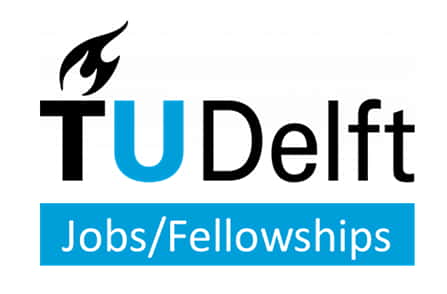Last Date: February 1, 2024.
Job description
Within the Netherlands Organ-on-Chip Initiative (NOCI) funded by NWO, the ECTM group at TU Delft is looking for enthusiastic & motivated researchers to develop innovative biodegradable technology-based Organs-on-Chip (OoC) platforms.
Our group is developing biodegradable MEMS (Micro-Electro-Mechanical Systems) for medical devices, a new class of microsystems made entirely of biodegradable materials, including electrodes, sensors, and actuators.
As part of the development of organ-on-chips, cell scaffolds made from biodegradable materials can be used to grow cells on a platform that provides the necessary electrical and mechanical stimuli for a pre-defined period, and measures the physiological parameters of interest. These scaffolds are then degraded in a way that does not harm the cells, resulting in tissues that are very close to the real organ.
The development of new functional biodegradable materials (with tailored magnetic, electrical, mechanical and chemical properties) and cleanroom-compatible manufacturing processes (micromolding, thin-film deposition, photolithography, etching) will enable the realization of fully biodegradable microsystems while retaining the established advantages of MEMS (small size, high precision, fast response time, low energy consumption, reliable large-scale production).
The project will focus on the fabrication of biodegradable microsystems for organ-on-chips, involving the development and characterization of new composite materials, with the aim of designing flexible electrodes, sensors and robotic actuators, all operating wirelessly.
The unique properties of these biodegradable microsystems will make it possible to address crucial societal challenges that could not otherwise be solved.
Requirements
Candidates with strong experience in micro/nanofabrication, materials engineering, mechanical engineering, and biomedical engineering are encouraged to apply or enquire further by contacting Dr. Boutry (C.M.F.Viellard-Boutry@tudelft.nl).
A PhD degree in microfabrication technologies, materials sciences, mechanical, biomedical, electrical engineering or related fields, as well as fluency with English, are required to apply for these positions.
Conditions of employment
Salary and benefits are in accordance with the Collective Labour Agreement for Dutch Universities. The TU Delft offers a customisable compensation package, discounts on health insurance, and a monthly work costs contribution. Flexible work schedules can be arranged.
For international applicants, TU Delft has the Coming to Delft Service. This service provides information for new international employees to help you prepare the relocation and to settle in the Netherlands. The Coming to Delft Service offers a Dual Career Programme for partners and they organise events to expand your (social) network.
TU Delft (Delft University of Technology)
Delft University of Technology is built on strong foundations. As creators of the world-famous Dutch waterworks and pioneers in biotech, TU Delft is a top international university combining science, engineering and design. It delivers world class results in education, research and innovation to address challenges in the areas of energy, climate, mobility, health and digital society. For generations, our engineers have proven to be entrepreneurial problem-solvers, both in business and in a social context.
At TU Delft we embrace diversity as one of our core values and we actively engage to be a university where you feel at home and can flourish. We value different perspectives and qualities. We believe this makes our work more innovative, the TU Delft community more vibrant and the world more just. Together, we imagine, invent and create solutions using technology to have a positive impact on a global scale. That is why we invite you to apply. Your application will receive fair consideration.
Challenge. Change. Impact!
Faculty Electrical Engineering, Mathematics and Computer Science
The Faculty of Electrical Engineering, Mathematics and Computer Science (EEMCS) brings together three scientific disciplines. Combined, they reinforce each other and are the driving force behind the technology we all use in our daily lives. Technology such as the electricity grid, which our faculty is helping to make completely sustainable and future-proof. At the same time, we are developing the chips and sensors of the future, whilst also setting the foundations for the software technologies to run on this new generation of equipment – which of course includes AI. Meanwhile we are pushing the limits of applied mathematics, for example mapping out disease processes using single cell data, and using mathematics to simulate gigantic ash plumes after a volcanic eruption. In other words: there is plenty of room at the faculty for ground-breaking research. We educate innovative engineers and have excellent labs and facilities that underline our strong international position. In total, more than 1000 employees and 4,000 students work and study in this innovative environment.
Click here to go to the website of the Faculty of Electrical Engineering, Mathematics and Computer Science.
Additional information
For further information, please contact Dr. Boutry (C.M.F.Viellard-Boutry@tudelft.nl).
Application procedure
Are you interested in this vacancy? Please apply before February 1, 2024 via the application button and upload the following documents:
- Detailed curriculum vitae
- Motivation letter (2 pages maximum)
- BSc and MSc Transcripts (and PhD transcript, if already available)
- Names and contact information of at least two references (contacts, letters not needed)
Top candidates will be invited for interviews.
- A pre-employment screening can be part of the selection procedure.
- You can apply online. We will not process applications sent by email and/or post.
- Please do not contact us for unsolicited services.






